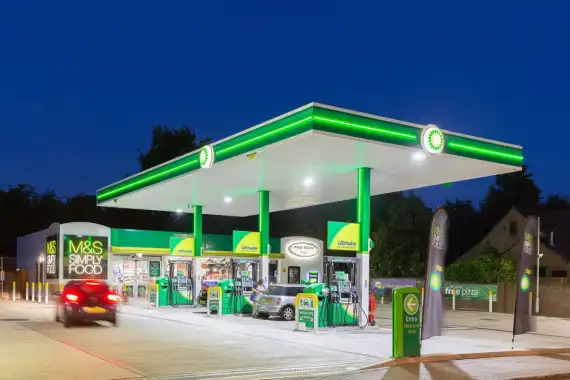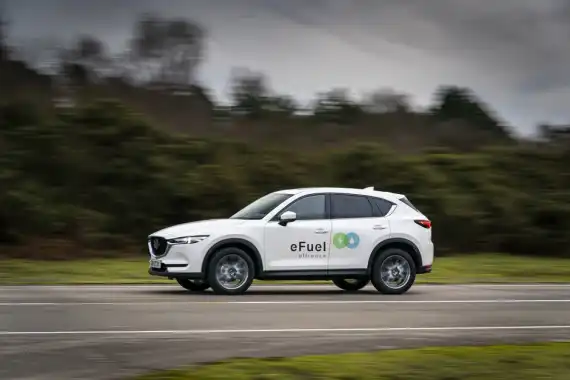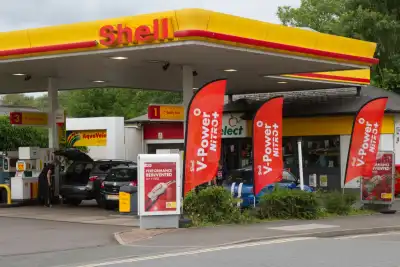There is a new look to our fuel stations and it’s causing quite a lot of confusion amongst motorists, so hopefully, we can clarify a few points.
Recently, we have seen the arrival of E10 at the petrol pumps and this replaces the standard 95 octane petrol that has been more familiar over the years.
There haven’t been any changes to diesel and almost 95 percent of petrol-driven cars or those built since 2011 will be compatible without any concerns. But it is worth checking with a manufacturer to be certain.
If you are driving a car that is not compatible, then you will still be able to fill up using the E5 grade which is also called 97+ octane petrol, although that will prove costlier than the 95 octane fuel. So you will now see the pumps labeled E10 and E5 from now on. (More on that here.)

The reasoning behind the re-naming process is all about reducing emissions as the E10 grade, which is widely used elsewhere around the world, contains 10 percent renewable ethanol whereas the petrol used in the UK until now contained just 5 percent.
By mixing petrol with 10 percent renewable ethanol, it means less fossil fuel is needed. This will have a positive impact on carbon emissions and with so much attention focused on climate change at the moment, anything that can be done to reduce greenhouse gases has to be applauded.
And according to the Government, introducing E10 could cut CO2 emissions by 750,000 tonnes a year which is equivalent to removing 350,000 cars from our road.
So, by developing a fuel that is cleaner to produce and therefore has less impact on the environment, could this mean the future of the combustion engine could be extended?
The Government has made it clear that the sale of new pure petrol or diesel driven cars will be banned from 2030 - a date that has been brought forward by five years, as part of the Government’s ‘green industrial revolution’ to improve air quality.
There has been plenty of talk about synthetic fuels and how they could impact on the future of our transport industry. These synthetic or carbon-neutral fuels capture the CO2 during the manufacturing process and are developed using purely renewable energy.
This cleaner process is certainly worth exploring as we will still need to run the likes of ships, aeroplanes, trucks and many trains so it’s not just cars that are the issue here.
And another advantage of synthetic fuels would be the filling up process which, unlike EVs that need to be plugged in, would be similar to topping up at the pumps.
This process is hardly a new one and the idea of synthetic fuel has been explored for more than a century now. But clearly with so much emphasis being placed on the future of the combustion engine, it’s a process that’s gaining momentum.
Although no cars are currently on sale running on synthetic fuel, manufacturers such as Porsche and Mazda are proving pioneers in the field of research and development.

There is also an ‘efuel alliance’ that is drawing on the expertise of scientists and technicians to speed up the developments.
Mazda was the first car manufacturer to sign up as the alliance, as Wojciech Halarewicz, Vice President Communications & Public Affairs at Mazda Motor Europe GmbH explained: “As an industry we must reduce emissions as much as possible. And to do this we must not ignore any of the available routes at our disposal. Greenhouse gas emissions and climate change are, by nature, a global and complex issue requiring an integrated approach. All sectors and industries must play their part and, above all, they must have the opportunity to share any positive options to achieving the climate goals.
“We believe that with the necessary investment, CO2-neutral e-fuels and hydrogen will make a credible and real contribution to emissions reduction – not only for newly registered cars but for the current fleet. This would open up a second and faster route to achieving climate neutrality in transport, hand-in-hand with continued electrification.”
But each step forward, such as this latest cleaner fuel at the petrol pumps has to be welcomed as one in the right direction.
If you are not sure whether or not your petrol car will be compatible with E10 there is a vehicle checker on the Department for Transport website. But, to be sure, it’s worth checking with the individual carmaker.
PS... can anyone tell us what engine is in the headline pictures? We'd be very impressed....



